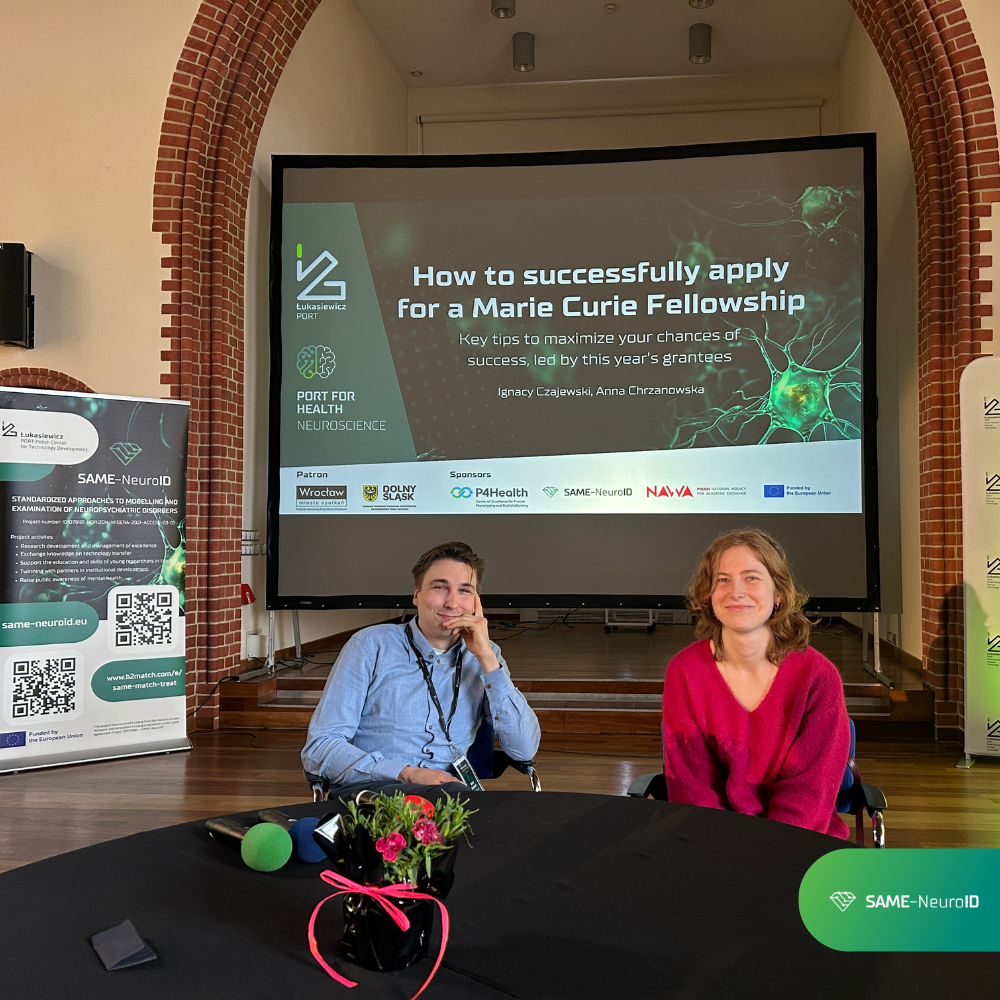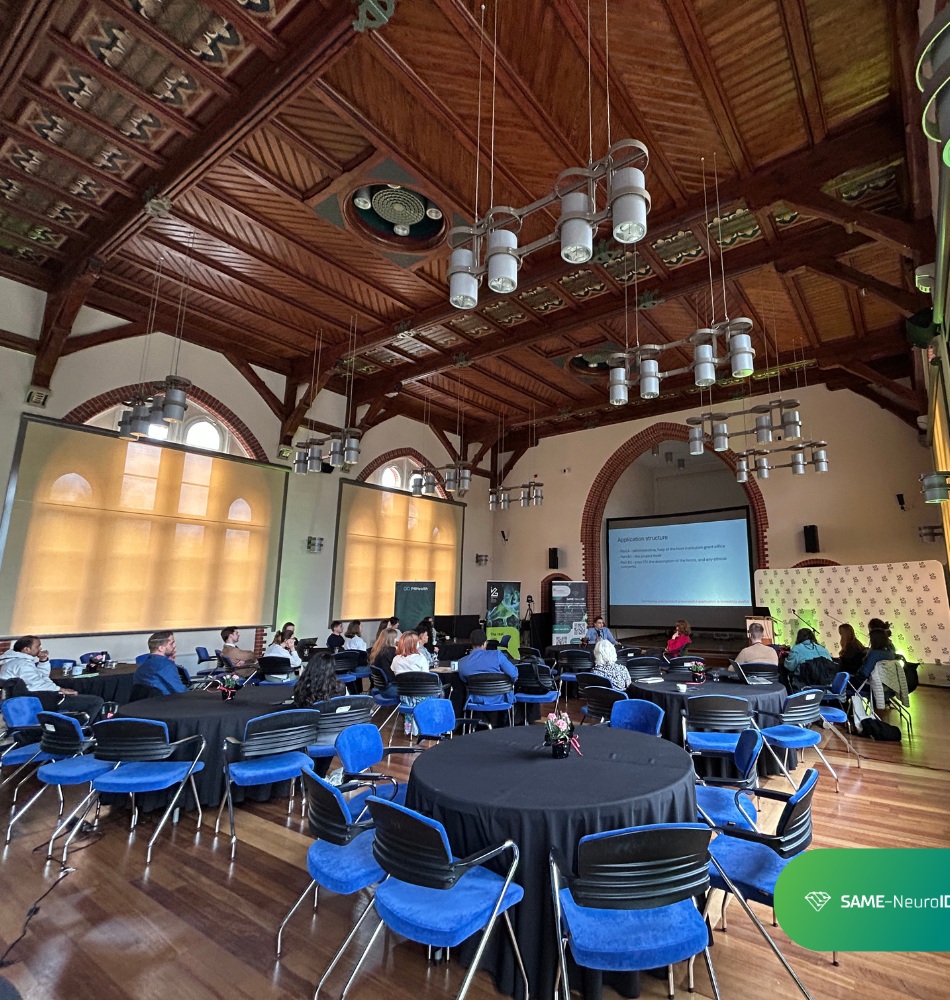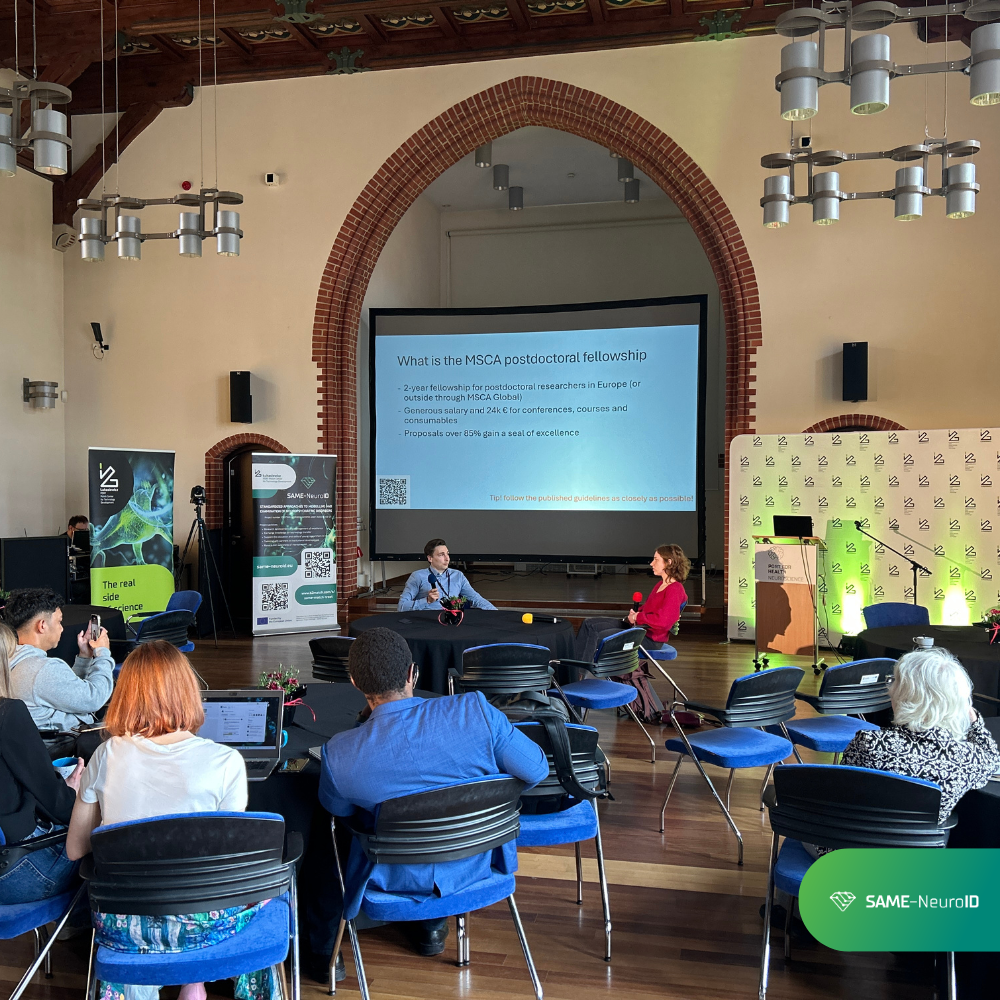As part of the PORT for Health: Neuroscience 2025 conference, a dedicated session on the Marie Skłodowska-Curie Actions (MSCA) took place on Wednesday, April 9th, from 13:30 to 15:00, focused on providing attendees with practical guidance for preparing a competitive MSCA application.
The session, titled „How to Write a Successful MSCA Application„, was delivered by Ignacy Czajewski and Anna Chrzanowska, two early-stage researchers who successfully secured MSCA Postdoctoral Fellowships and will soon begin their MSCA projects in the Institut du Cerveau (ICM) – the Paris Brain Institute, which is a partner institution in the SAME-NeuroID project – the sponsor of this session.
Ignacy Czajewski is a researcher specializing in molecular, cell, and developmental biology. His MSCA-funded project, EpiGlyco, will investigate the role of glycosylation in focal cortical epilepsy by modeling disease mechanisms in brain organoids.
Anna Chrzanowska is a behavioral neuroscientist with a research focus on invertebrate cognition and sensory-motor processing. Her MSCA project, ExpAND, will explore asymmetric neural dynamics in the visual system of Drosophila.


During the session, Ignacy and Anna offered a structured and transparent walkthrough of the MSCA Postdoctoral Fellowship application process. Their talk was grounded in their personal experience, offering realistic and practical insights. Topics included:
The session was highly interactive, with participants raising a wide range of questions about eligibility, host selection, scientific independence, mobility rules, and ways to strengthen weaker parts of a CV or publication record.
The Marie Skłodowska-Curie Actions (MSCA) are part of the Horizon Europe framework and represent one of the most prestigious and competitive funding opportunities for researchers in Europe. MSCA Postdoctoral Fellowships are designed to support the mobility, training, and career development of excellent researchers. They offer generous funding for salary, research, training, and networking, and allow fellows to work in an international and interdisciplinary environment.
Securing an MSCA fellowship can significantly enhance a researcher’s career trajectory by offering visibility, recognition, and strong institutional support. However, the application process is demanding, with a highly competitive selection process that requires strategic planning, clarity of vision, and strong institutional backing.
This session was made possible thanks to the support of the SAME-NeuroID project – a collaborative initiative supporting career development and scientific excellence in the field of neuroscience.

video
The full presentation is available to watch online.
We encourage all early-career researchers considering applying for MSCA to view the session. It offers honest, experience-based advice on how to prepare a successful application that stands out in a crowded field.
With a relentless pursuit of knowledge, we unravel the complexities of the mind, unraveling the mysteries that hinder mental well-being. Join us as we pave the way for breakthroughs in neuroscience and offer hope for a brighter future
Copyright © 2023
Designed by Vex Design Studio